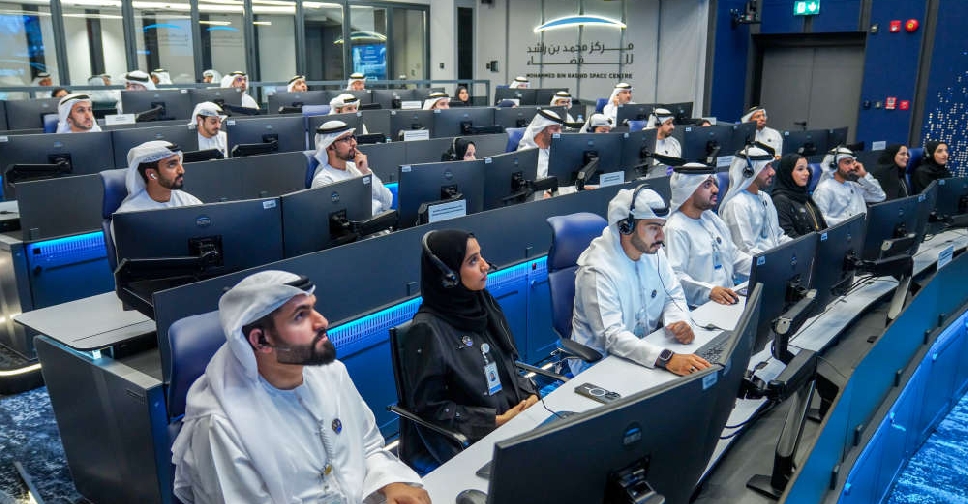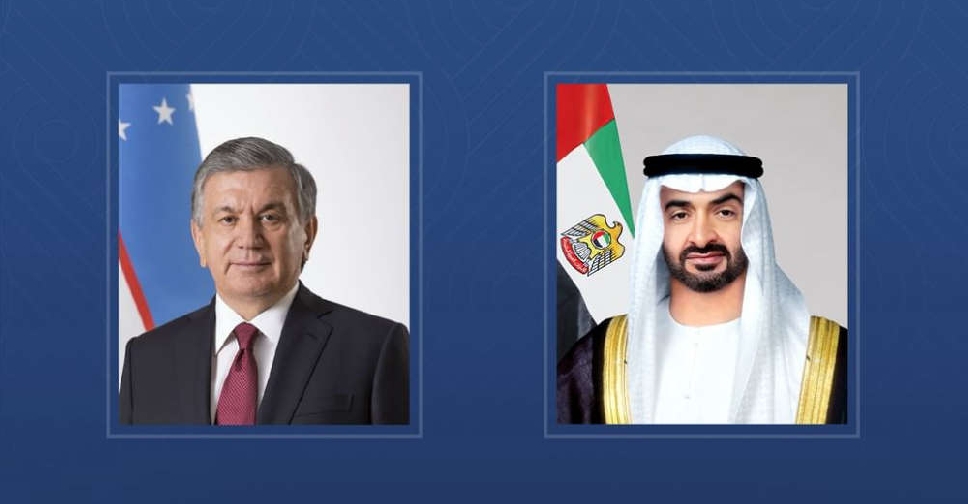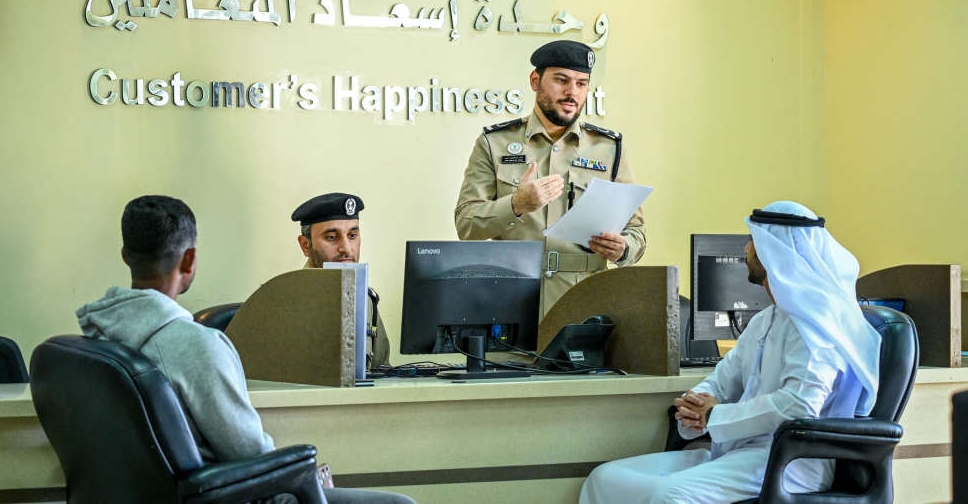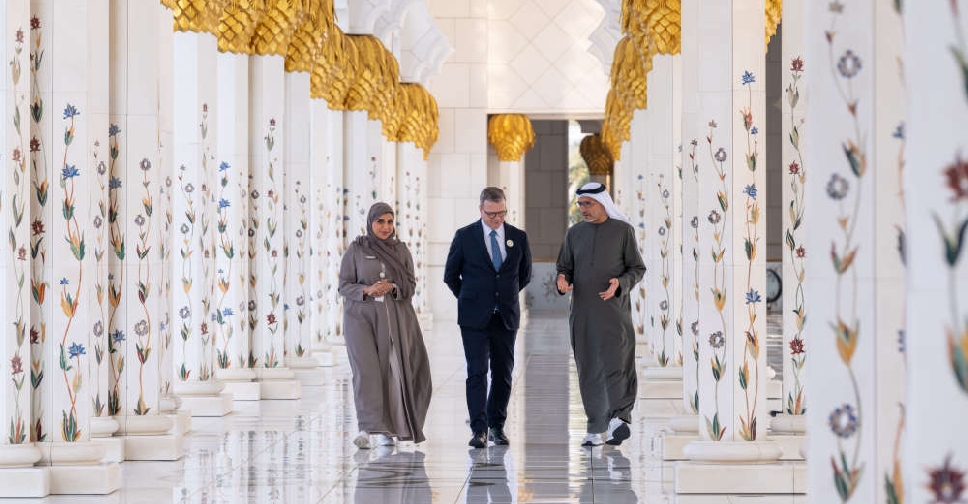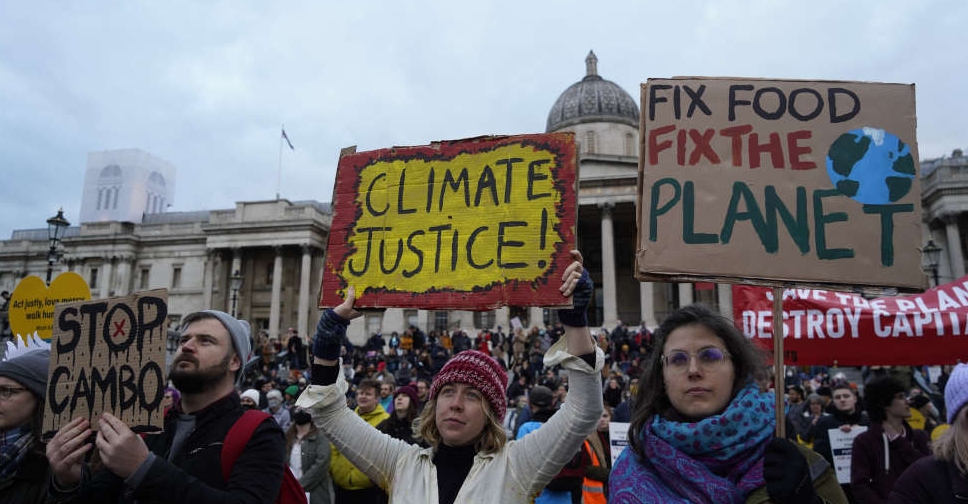
Braving heavy rain, tens of thousands of protesters including indigenous people, workers, environmentalists and social activists took to Glasgow's streets, decrying glacial progress on climate change threats inside the formal COP26 UN summit.
At the city's Kelvingrove Park, the day of protests started with a rally organised by the Fire Brigades Union demanding green jobs and racial justice.
Vulnerable people in countries that have contributed least to climate change bear the brunt of extreme weather and rising seas on a warming planet, speakers said.
Throngs of protesters, including Swedish teen activist Greta Thunberg, then wound their way through the city centre to a second rally at Glasgow Green, where indigenous community members called for rainforest protection and food producers urged ecologically friendly forms of farming.
Asad Rehman, co-director of the COP26 Coalition, which brings together British groups campaigning on climate change, said the Glasgow march was just one of more than 300 climate demonstrations around the world Saturday as the UN climate talks hit their midpoint.
The coalition estimated about 120,000 people took to the streets of Glasgow, amid rain that at times blew in sideways.
Rehman, also director of charity War on Want, pointed to the diversity of protesters, with indigenous peoples, African climate activists and others from developing nations leading the Glasgow march after braving pandemic restrictions to travel to COP26.
"We have built a movement that is not just of environmentalists but that involves and connects with labour movements, faith organisations (and) grassroots activists," he said.
That shows how "the (climate) crisis we face is a multiple crisis... a symptom of a rigged economy and a broken system," he told the Thomson Reuters Foundation.
Rally speakers decried the legacy of colonialism by industrialised northern countries, and said climate change - now fuelling disasters, natural destruction and migration worldwide - could not be tackled only by those in positions of privilege.
Yvonne Blake, co-founder of Scottish community group Migrants Organising For Rights and Empowerment, said citizens from the Global South should have the opportunity to speak for themselves and not tolerate others doing it for them.
"If these people are speaking about us and we are not represented, they do not speak for us," she told a soaking-wet crowd as she stood atop a fire engine hung with a banner reading, "Firefighters know an emergency when they see one".
"We cannot expect the people in COP to bring the changes, because they are the ones who created the problem. The climate crisis is a racist crisis and their 'solutions' are racist solutions," said Blake, whose parents emigrated from Jamaica to Britain.
Marchers said they felt the politicians, business people and international green groups inside the COP26 summit were failing to act fast enough to curb global warming and did not work for ordinary peoples' interests.
Nicolas Haeringer, associate director for partnerships with the global climate campaign 350.org, said those inside the talks should listen to those trying to lead change on the outside and make more space for them.
"The outside should become the inside... (to) catch up with the two decades we have lost to fossil fuel lobbies, captured interests and climate denial," he told Reuters.

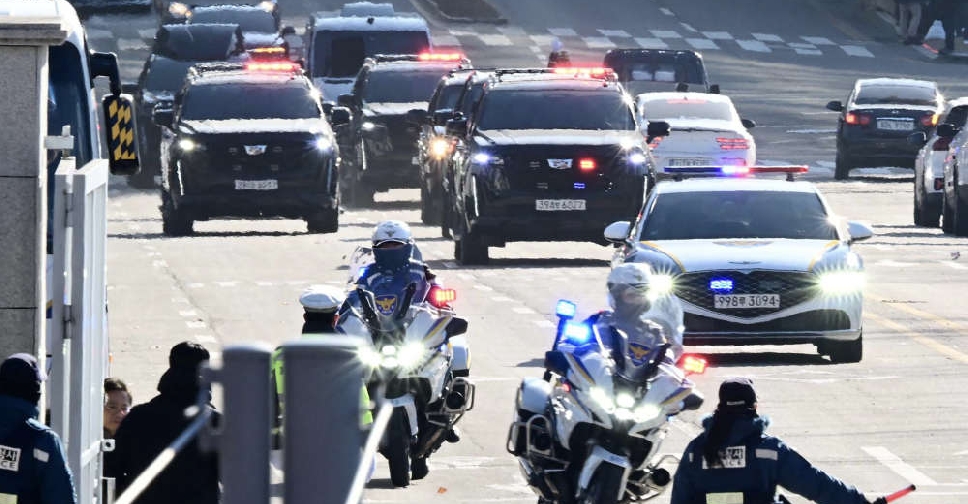 Man sets himself on fire near South Korean anti-graft office
Man sets himself on fire near South Korean anti-graft office
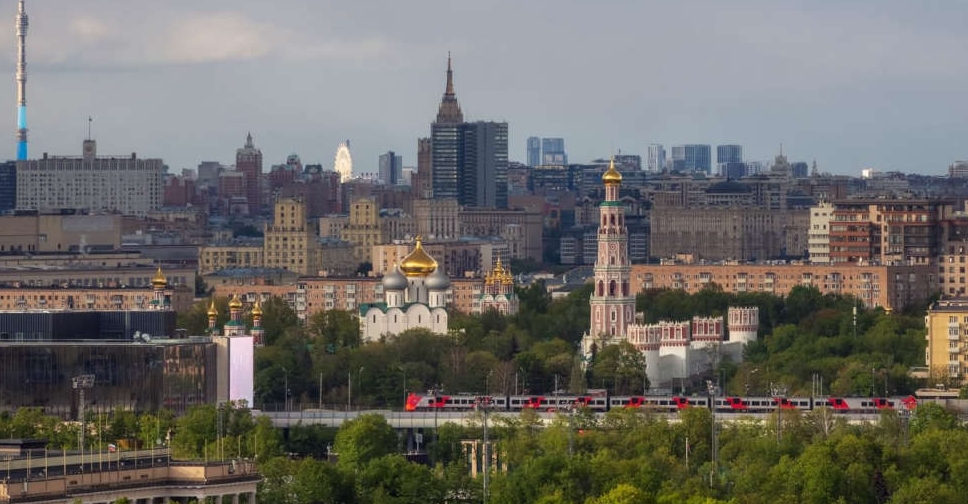 Russia charges 27 over Crocus terror attack
Russia charges 27 over Crocus terror attack
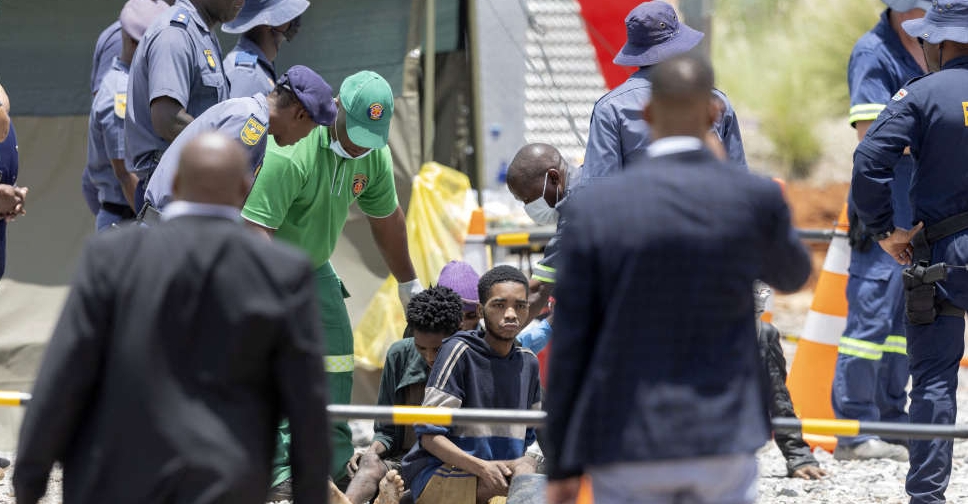 78 bodies retrieved from closed South African gold mine
78 bodies retrieved from closed South African gold mine
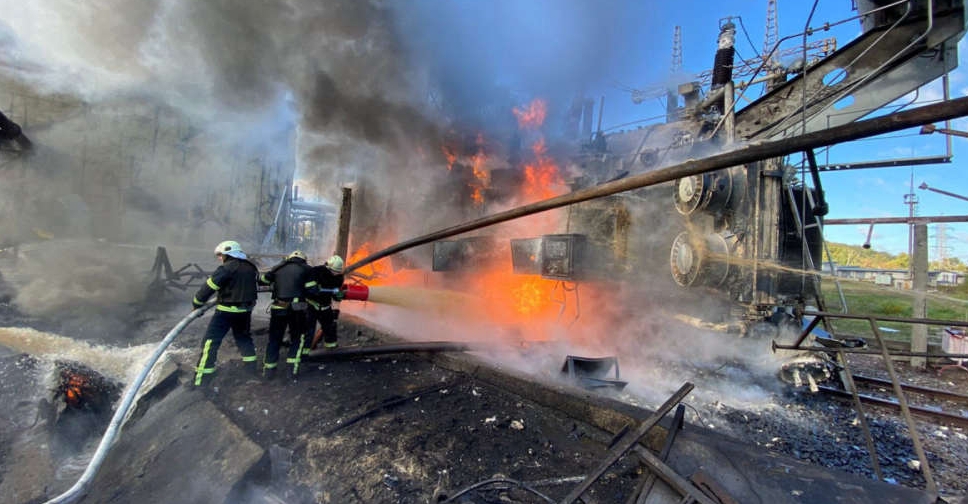 Ukraine reports emergency power cuts amid 'massive' Russian air strike
Ukraine reports emergency power cuts amid 'massive' Russian air strike
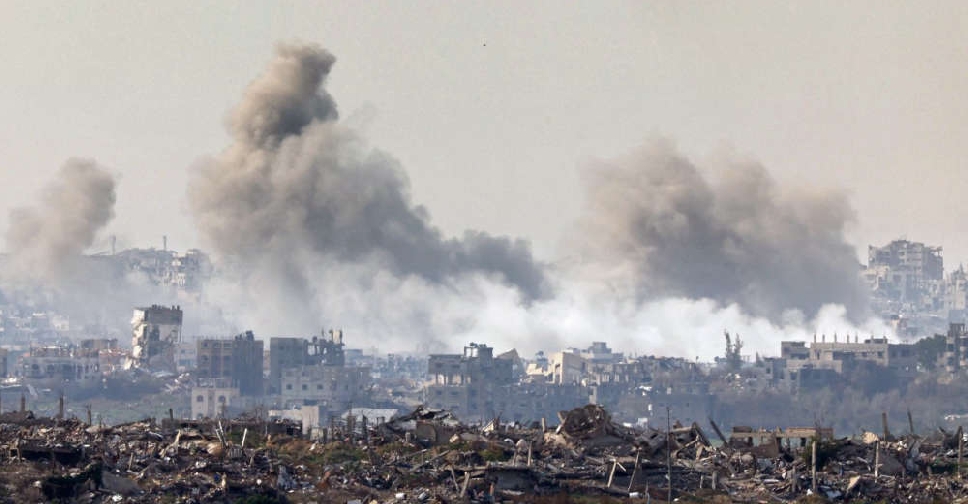 Hopes increase as Gaza ceasefire appears close
Hopes increase as Gaza ceasefire appears close
